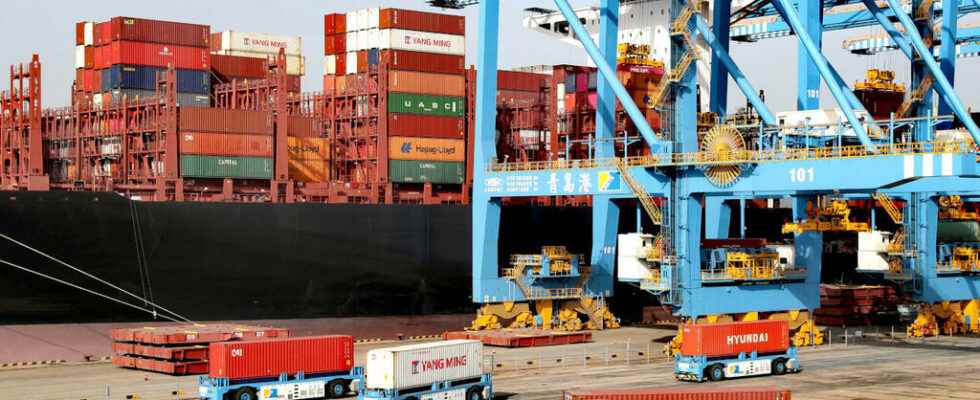The growth of Chinese exports slowed sharply in April, +3.9% compared to the previous year, this is the lowest level recorded since June 2020. A drop linked to the confinements and semi-confinement of dozens of megacities in China, but also to the decline in foreign demand.
With our correspondent in Beijing, Stephane Lagarde
Blame it on inflation, which weighs on household income, orders from the United States and Europe, the two main “Made In China” markets, have fallen in recent weeks. With a drop in particular in the consumption of screens: tablets, computers and smartphones in high demand during periods of epidemic resurgence.
Except that today, it is China that is facing the Omicron rebound. ” The sharp decline in export growth is mainly due to shutdowns in many cities, including Shanghai “, explains Zhang Zhiwei quoted by the SCMP.
Disruption of supply chains
Disrupted supply chains are forcing manufacturers to scale back production. The Yangtze River Delta region around Shanghai is among the most affected by health measures. It represents more than 50% of national production, including many essential spare parts for industry. It was also, before the confinements, one of the most active in terms of logistics.
Blockades on the roads, a shortage of drivers, the rise in the price of raw materials and anti-epidemic rules which change all the time do not favor a return to normal. ” As the number of confirmed Covid-19 cases in the Yangtze River Delta region continues to rise, local epidemic prevention policies for trucks are constantly changing. In some regions, there are “daily changes”, which also poses challenges for freight management “, confide professionals of the sector to The Economic Observer.
Partial restart of factories
Since mid-April, the Shanghai Municipality has authorized nearly 2,000 key enterprises to resume work in “ closed loop “. The workers sleep on the spot, like the truck drivers in their trucks. A decision which is far from concerning all the factories. 63% of members of the Japanese Chamber of Commerce had not restarted their activity at the end of April.
The imports which had fallen slightly in March, remained stable in April compared to a year ago, but they could settle in the coming weeks. The Politburo Standing Committee of the Communist Party of China in its meeting on May 5 stressed strengthening inspections of shipments from overseas suspected of contributing to the spread of the virus in China.
►To read: China: for President Xi Jinping, “zero Covid” at all costs
